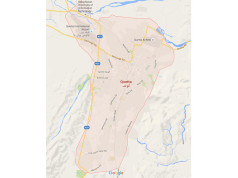Anwar Noor Baloch
In spite of numerous attempts to convince myself to understand the definitions of leadership given by writers, authors, and speakers, I wasn’t able to grasp them. It seems as though something is missing within the lines of leadership. Leadership is a role someone can assume for a specified period of time?
Leadership is not at all about seniority or one’s position in the hierarchy as what we see in today’s modern institutions. Leadership is beyond that.
Bruce J. Avolio in his book, full leadership development says, that; “To lead means to step back before moving forward”. Are Bruce’s remarks implying that the past must be analyzed and what went wrong must be corrected and the future better? It is a good idea, by the way, and many leaders might follow suit.
One of the authors, namely, Lauri J. Mullin has defined leadership by stating; “There are many ways of looking at leadership and many interpretations of its meaning”. In other words, leadership does not mean that it is a one-line path to go, but that it has numerous other perspectives from which to look at it from different perspectives.
Where does the word leader come from? Joseph C. Rost, says that; “The word leader first appeared in the English language in the year the 1300s: it stems from the root of “leden” meaning to travel or show the way”. I can argue in this way by saying that if I have traveled a lot and shown people different ways, will I become a leader?
I agree with Bass who said that; “Different definitions serve different purposes. Today the definitions of leadership have become so pervasive that its true meaning is difficult to ascertain”. The true meaning and goal of leadership still remain obscure to me. It is because of the role play and the person creating the role.
Three years ago, I read the book of Ken Blanchard on leadership, where he stated that; “They must have visions, a vision must have built trust, collaboration, independence, motivation, and mutual responsibility for success. Vision helps people make smart choices because their decisions are being made with the end result in mind”. This definition seems like a wish, but leadership isn’t about wishes.
I liked the way Kevin Kruse criticized the definition of Peter Drucker on leadership. “The only definition of a leader is someone who has followers”, says, Peter Drucker.
Kevin Kruse replied that; “A new Army Captain is put in the command of 200 soldiers. He never leaves his room or utters a word to the men and women in his unit. Perhaps routine orders are given through a subordinate. By default, his troops have to “follow” orders. Is the Captain really a leader?
Disclaimer: Views expressed in this article are those of the author and Balochistan Voices does not necessarily agree with them.
Share your comments!








